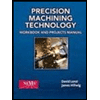University Of Babylon College of Mussayb Automobile Production Quiz(2) 2024-205 7. Which classification method considers the number of independent movements a robot can make? 0 0 о a) Classification by Degrees of Freedom b) Classification by Kinematic Structure c) Classification by Drive Technology d) Classification by Workspace Geometry 8. Which classification method focuses on the arrangement of the robot's joints? 。 a) Classification by Degrees of Freedom 。 b) Classification by Kinematic Structure ° c) Classification by Drive Technology od) Classification by Motion Characteristics 9. What is the difference between a robot with 2 Degrees of Freedom (DOF) and one with 6 DOF? о a) The 6 DOF robot can move faster. o b) The 6 DOF robot can move more precisely. o c) The 6 DOF robot can perform more complex tasks. o d) All of the above 10. What are some examples of drive technologies used in robots? 。 a) Hydraulic, pneumatic, and electric о b) Gear, belt, and chain drives o c) Ball screws, lead screws, and rack and pinion drives od) All of the above 11. What is the primary goal of the techniques mentioned in the text? ° a) Increase productivity ° b) Improve quality о c) Reduce cost od) All of the above 12. Which of the following is NOT a core principle of the management philosophy described in the text? о a) Elimination of waste о b) Continuous improvement о c) Increased efficiency od) Standardization of processes 13. Which technique would be most effective in reducing the cost of an operation? o a) Lean manufacturing 。 b) Six Sigma ° c) Total Quality Management (TQM) ° d) Kaizen
University Of Babylon College of Mussayb Automobile Production Quiz(2) 2024-205 7. Which classification method considers the number of independent movements a robot can make? 0 0 о a) Classification by Degrees of Freedom b) Classification by Kinematic Structure c) Classification by Drive Technology d) Classification by Workspace Geometry 8. Which classification method focuses on the arrangement of the robot's joints? 。 a) Classification by Degrees of Freedom 。 b) Classification by Kinematic Structure ° c) Classification by Drive Technology od) Classification by Motion Characteristics 9. What is the difference between a robot with 2 Degrees of Freedom (DOF) and one with 6 DOF? о a) The 6 DOF robot can move faster. o b) The 6 DOF robot can move more precisely. o c) The 6 DOF robot can perform more complex tasks. o d) All of the above 10. What are some examples of drive technologies used in robots? 。 a) Hydraulic, pneumatic, and electric о b) Gear, belt, and chain drives o c) Ball screws, lead screws, and rack and pinion drives od) All of the above 11. What is the primary goal of the techniques mentioned in the text? ° a) Increase productivity ° b) Improve quality о c) Reduce cost od) All of the above 12. Which of the following is NOT a core principle of the management philosophy described in the text? о a) Elimination of waste о b) Continuous improvement о c) Increased efficiency od) Standardization of processes 13. Which technique would be most effective in reducing the cost of an operation? o a) Lean manufacturing 。 b) Six Sigma ° c) Total Quality Management (TQM) ° d) Kaizen
Precision Machining Technology (MindTap Course List)
2nd Edition
ISBN:9781285444543
Author:Peter J. Hoffman, Eric S. Hopewell, Brian Janes
Publisher:Peter J. Hoffman, Eric S. Hopewell, Brian Janes
Chapter8: Computer Numerical Control
Section8.8: Computer-aided Design And Computer-aided Manufacturing
Problem 5RQ: What is the definition of entity?
Related questions
Question

Transcribed Image Text:University Of Babylon
College of Mussayb
Automobile Production
Quiz(2) 2024-205
7. Which classification method considers the
number of independent movements a robot can
make?
0
0
о
a) Classification by Degrees of Freedom
b) Classification by Kinematic Structure
c) Classification by Drive Technology
d) Classification by Workspace Geometry
8. Which classification method focuses on the
arrangement of the robot's joints?
。 a) Classification by Degrees of Freedom
。 b) Classification by Kinematic Structure
° c) Classification by Drive Technology
od) Classification by Motion
Characteristics
9. What is the difference between a robot with 2
Degrees of Freedom (DOF) and one with 6
DOF?
о a) The 6 DOF robot can move faster.
o b) The 6 DOF robot can move more
precisely.
o c) The 6 DOF robot can perform more
complex tasks.
o d) All of the above
10. What are some examples of drive technologies
used in robots?
。 a) Hydraulic, pneumatic, and electric
о
b) Gear, belt, and chain drives
o c) Ball screws, lead screws, and rack and
pinion drives
od) All of the above
11. What is the primary goal of the techniques
mentioned in the text?
°
a) Increase productivity
° b) Improve quality
о c) Reduce cost
od) All of the above
12. Which of the following is NOT a core principle
of the management philosophy described in the
text?
о
a) Elimination of waste
о
b) Continuous improvement
о
c) Increased efficiency
od) Standardization of processes
13. Which technique would be most effective in
reducing the cost of an operation?
o a) Lean manufacturing
。 b) Six Sigma
°
c) Total Quality Management (TQM)
°
d) Kaizen
Expert Solution
This question has been solved!
Explore an expertly crafted, step-by-step solution for a thorough understanding of key concepts.
Step by step
Solved in 2 steps

Recommended textbooks for you

Precision Machining Technology (MindTap Course Li…
Mechanical Engineering
ISBN:
9781285444543
Author:
Peter J. Hoffman, Eric S. Hopewell, Brian Janes
Publisher:
Cengage Learning

Principles of Heat Transfer (Activate Learning wi…
Mechanical Engineering
ISBN:
9781305387102
Author:
Kreith, Frank; Manglik, Raj M.
Publisher:
Cengage Learning

Precision Machining Technology (MindTap Course Li…
Mechanical Engineering
ISBN:
9781285444543
Author:
Peter J. Hoffman, Eric S. Hopewell, Brian Janes
Publisher:
Cengage Learning

Principles of Heat Transfer (Activate Learning wi…
Mechanical Engineering
ISBN:
9781305387102
Author:
Kreith, Frank; Manglik, Raj M.
Publisher:
Cengage Learning